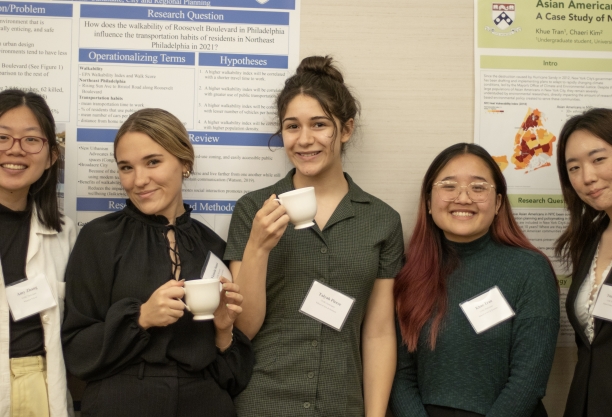About
The Penn IUR Undergraduate Urban Research Colloquium (UURC) facilitates faculty- and doctoral student-mentored, undergraduate urban-focused research. The program includes funding support for a joint research project and a semester-long, credit-bearing seminar (CPLN 5280/URBS 4280).
The course is cross-listed between the Weitzman School of Design’s Department of City and Regional Planning and the School of Arts and Science’s Urban Studies Program. Students from each of the University’s undergraduate schools (Arts and Sciences, Engineering and Applied Science, Nursing, and Wharton) are eligible to participate, and faculty and doctoral students from across the University’s 12 schools are welcome to paricipate in research on a wide range of urban issues. The program will sponsor up to 10 projects each spring. Grant funds will be provided to support new and/or existing research efforts.
In the past, research projects have ranged from ethnographic studies of Philadelphia nightlife, to identifying barriers to walking in disadvantaged neighborhoods, to analyzing urban mass transit. UURC student-faculty collaborations have yielded publications in refereed journals, leveraged other research funding, and prepared undergraduates to pursue original research as an extension of the UURC project or in other areas.



